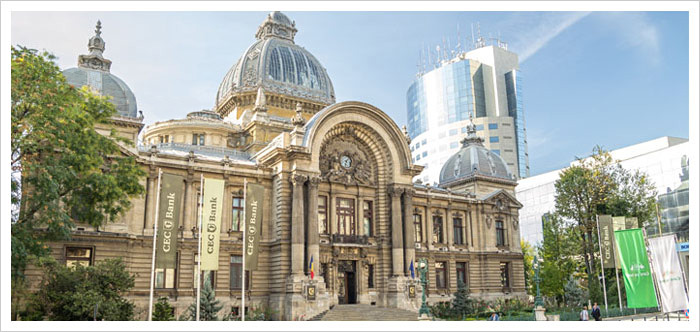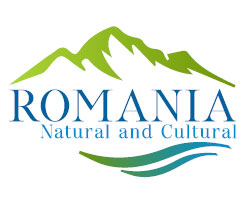
Travel Documents
Documents for admission into RomaniaA valid passport is required for all overseas/ non-EU visitors.
Your passport must be valid for the entire duration of your visit
(it will not expire sooner than your intended date of departure).
However, please check the expiration date on your passport carefully before traveling to Europe.
Some airlines (i.e. Lufthansa) may refuse boarding at your point of origin or while transferring planes
if your passport is not valid for at least three months beyond your intended date of departure;
or your entry into the Schengen Area could be denied.
For this reason, the U.S. Department of State – Bureau of Consular Affairs recommends
that your passport has at least six months' validity remaining whenever you travel abroad.
For stays longer than 90 days visitors need to need to apply for a temporary residence permit
(either before arriving into Romania or at least 30 days before the 90-day "no visa" stay expires).
To apply for an extended stay visa please visit
eVisa.MAE.ro.
Additional information are available from any Romanian Immigration Office
Citizens of the European Union countries
can enter Romania with a valid passport or with their National Identity Card.
...
Romania Entry VisaDepending on your citizenship, you may be required to show different documents at the port-of-entry.
American and Canadian citizens as well as citizens of Australia, New Zealand
and most European countries do not need an entry visa to visit Romania,
providing duration of stay is not more than 90 (ninety) days,
accumulated during a single visit - or multiple visits - within a six-month period.
Citizens of some countries and territories need a visa to visit Romania.
To quickly check if you need a visa please visit E-Visa.MAE.ro
(select the "Get Informed" tab (up left) and enter the following information:
passport issuing country, type of visa, type of travel document).
Info on entry requirements and visa requirements are also available at
www.mae.ro.
Please send all inquiries regarding visa and entry requirements
to the nearest Consulate of Romania.
RomaniaTourism has no authority or expertise to answer questions regarding travel documents or visa.
List of countries whose nationals, bearer of a regular passport
» are exempt from the requirement of a Romanian visa.
List of countries whose nationals, bearer of diplomatic, service, official passport and seamen's books
» are exempt from the requirement of a Romanian visa.
List of countries whose nationals, holders of regular passport
» need a visa to enter Romania.
...
Schengen Visas validity in RomaniaRomania is part of Schengen area of free movement opening up travel
from/to Hungary and from/to Bulgaria - by land, air and water - without border checks.
Schengen Visa holders do not need to get a (special) Romanian visa to visit Romania
as long as they have a valid Schengen visa, issued by any Schengen member country,
and the number of entries and/ or length of stay permitted has not been not exhausted.
More info concerning Romania visa requirements / Schengen visa.
The Schengen visa zone includes 25 EU member countries along with four non-EU states: Iceland, Liechtenstein, Norway, and Switzerland.
an automated IT system for registering non-EU nationals travelling for a short stay, each time they cross the external borders of any of the following European countries using the system.
Starting in 2026, most travelers from visa-exempt countries will need ETIAS (European Travel Information and Authorization System) approval before entering EU countries in the Schengen Area. ETIAS will function similarly to other visa waiver programs like the ESTA (Electronic System for Travel Authorization) in the United States.
More ETIAS info.
...
Health
No immunizations or unusual health precautions are necessary or required.
Romania has no infectious risks and there are no poisonous insects.
There is no malaria in Romania.
During the summer months mosquitoes are present in the Danube Delta and some low-lying regions.
For your comfort take some mosquito repellent with you, if visiting Romania during the warm season.
Tap water is safe to drink; if you prefer, bottled water is inexpensive and widely available.
Romania is home to more that 1/3 of the natural mineral springs in Europe.
Some Romanian bottled waters are rated the best in the world for purity and taste
and are exported to many foreign countries.
Naturally, we hope that you will never need to use any medical facilities.
However, Romanian doctors are known for their high standard of medical education.
The embassy of your country, to Romania, can probably provide a list of preferred physicians or medical facilities.
...
Travel with Pets in Romania
Pet Entry RequirementsLeisure travelers or soon-to-be expatriates (departing from non-EU countries)
generally fall within the EU regulations for non-commercial pet travel to Europe.
The following EU regulations apply only to dogs, cats or ferrets.
Please contact your Embassy/ Consulate (or the embassy of destination country)
to determine what (if any) protocol to follow for other types of pets.
Documents needed to take your pet into Romania include:
1. Proof of rabies vaccinations - Rabbies Certificate
(Your veterinarian issued documentation that proves rabies vaccination and disproves the existence of rabies in your pet,
specifying that this documentation is certified for your travel to the EU).
Your pet may not travel to Europe until at least 21 days after the primary rabies vaccine.
2. Pet's Health Certificate
The health certificate must prove that your pet has had all its shots and is healthy enough to travel.
Although this certificate is technically valid for 4 months,
it is recommended to be completed and endorsed by the USDA within 10 days of travel to avoid any customs issues upon arrival.
The results of a serological test and the pet's vaccination details must be attached to the health certificate.
Obtain this documentation within 10 days of travel.
For travel to Europe, an additional single-sheet EU Vet Health Certificate form
must be filled out and certified by your vet.
3. Microchip Implantation Record
Microchips provide electronic identification on your pet.
If your pet doesn't already have a microchip you can easily get one.
All original documentation must travel with your pet.
Translation of documents is not needed if they are in English, French or German.
More info concerning pet movement from non-EU countries
Romania Pet Travel check list
Dogs: must be kept in leash and wear a muzzle.
Small pets and birds: must be kept in a cage at all times.
Some municipalities might have additional regulations regarding travel with pets in city buses or trams.
A small number of cities in Romania do not allow pets on board of their public transportation fleet.
Dogs: must be kept in leash and wear a muzzle at all times.
Small pets and birds: must be kept in a cage at all times.
Dogs are allowed in second-class cars only;
they must stay on the floor, in leash, and wear a muzzle at all times.
If a passenger is allergic to pet-hair or is not comfortable in the presence of a dog,
the owner of the dog must find a seat / place in another car.
Dog's health certificate must be available for inspection by the train conductor.
A ticket is required for all (larger) dogs that do not travel in a pet-cage hold in the lap of the owner.
The cost of a train ticket for a dog is 50% of the price of a ticket for an adult traveler.
Dog breeds with aggressive tendencies/ history (Pittbull, Boerboer, Bandogge) are not allowed on trains.
Pets in Romania Inter-City BusEach bus company has its own rules regarding pet travel / transportation.
Air transportationEach airline has its own rules regarding pet travel / transportation.
An international pet passport is required for pets traveling to EU / Schengen countries.
Although there are uniform regulation within the EU,
some European countries have additional own regulations regarding pets.
Romanians love pets; please don't be surprised or offended if someone you don't know
tries to pet your dog or cat without asking permission.
Each hotel or restaurant has its own pet policy.
In general pets are allowed in hotels and restaurants.
Many hotels will charge extra the guests bringing their pets.
...
Romania Customs Regulations
Romanian Customs regulations are in line with those of most European countries.
A traveler can enter and leave Romania with up to 10,000 Euros (or equivalent) in cash or traveler's checks.
Amounts over 10,000 Euros have to be declared when entering the country.
Items that must be declared at customs also include: art objects, historic artifacts, weapons, ammunition, explosive materials, toxic and hazadous substances.
Import allowances:- Tobacco: 40 cigarettes or 50 cigars or 250 g (100 oz) tobacco.
- Liquor: 4 litres of still wine and 16 litres of beer or 2 litres of alcoholic drinks less than 45 proof or
one litre of liquor stonger than 45 proof. (one litre = 33.8 fl. oz).
- A reasonable quantity of gifts with a total value of up to $450.
- Goods and medical products/ medicines for personal use.
Customs officers do not usually check the luggage of individual travelers or tour groups.
However, you must know that, as in any other country,
custom officers have the authority to check passports and to conduct enforcement examinations without a warrant,
ranging from a single luggage examination to a personal search.
More
information on European customs regulations
...
Driving in Romania
U.S. / Canadian / Australian / New Zealand / European drivers' licenses
are valid and can be used for driving in Romania,
by visitors who are in the country temporarily (less than 90 days).
Driving is on the right side of the road.
Independent travelers entering Romania by car (own or rental) need to obtain a road toll sticker, called "RoVinieta".
RoVigneta is available on-line at Roviniete, and
E_Rovinieta,
as well as at border-crossing points, postal offices and most gas stations.
Cost of RoVinieta for passenger cars is the Romanian currency equivalent of
$3.50 (7 days) or $8.00 (30 days).
Romania Rules of the Road are available at RomaniaTourism Practical Information section
General emergency phone #: 112


